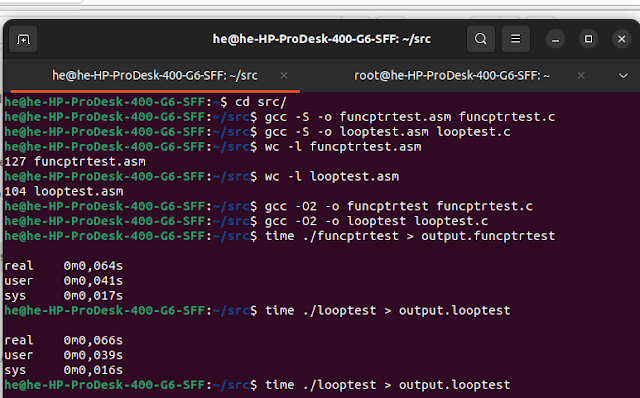%option noyywrap
%{
#include <stdio.h>
#include <stdlib.h>
#include <math.h>
#include "getopt.h"
#include <string.h>
#define MAXLEN 1024
int i, j, idx, len, mode = 0;
char tmps[MAXLEN], reverse[MAXLEN];
%}
SEGA [2][5][0-5]
SEGB [2][0-4][0-9]
SEGC [1][0-9]{2}
SEGD [1-9][0-9]{0,1}
SEG {SEGA}|{SEGB}|{SEGC}|{SEGD}
IP {SEG}["."]{SEG}["."]{SEG}["."]{SEG}
HOSTDOMAINSEGMENT [0-9a-zA-Z_"\-"]+["."]
TOPLEVELDOMAIN [a-zA-Z]{2,7}
HOSTNAME {HOSTDOMAINSEGMENT}+{TOPLEVELDOMAIN}
USER [0-9A-Za-z_"\-""."]+
EMAIL1 {USER}"@"{HOSTNAME}
EMAIL2 {USER}"@"{IP}
URIPROTOCOL [a-zA-Z]{2,10}"://"
URISUFFIX [^ \t\n\r"@"","">""<""("")""{""}"]
URL1 {URIPROTOCOL}{HOSTNAME}{URISUFFIX}*
URL2 {URIPROTOCOL}{IP}{URISUFFIX}*
%%
<<EOF>> {
exit(1);
}
{EMAIL1} |
{EMAIL2} {
if (strchr(yytext, '@') != (char *)NULL)
{
switch((mode % 16))
{
case 0: strcpy(tmps, yytext); break;
case 1: strcpy(tmps, strchr(yytext, (int)'@')); break;
case 2: strcpy(tmps, &strchr(yytext, (int)'@')[1]); break;
case 4:
strcpy(tmps, &strchr(yytext, (int)'@')[1]);
len = strlen(tmps);
for (j = 0, idx = 0; ((j < len) && (j < MAXLEN-1)); j++)
{
if (tmps[j] == '.')
{
for (i = idx; i <= j;
reverse[(len-j) + (i-idx)] = tmps[i++]);
idx = j + 1;
}
}
for (i = idx; i <= j;
reverse[(len-j) + (i-idx)] = (i < len) ? tmps[i] : '.', i++);
reverse[len + 1] = '\0';
strcpy(tmps, reverse);
break;
case 8: strcpy(tmps, &strrchr(yytext, (int)'.')[1]); break;
default: strcpy(tmps, yytext); break;
}
(void) printf("%s\n", tmps);
}
}
{URL1} |
{URL2} {
if (mode < 16)
{
switch((mode % 16))
{
case 0: strcpy(tmps, yytext); break;
case 1: strcpy(tmps, strchr(yytext, (int)'/')); break;
case 2: strcpy(tmps, &strrchr(yytext, (int)'/')[1]); break;
case 4:
strcpy(tmps, &strrchr(yytext, (int)'/')[1]);
len = strlen(tmps);
for (j = 0, idx = 0; ((j < len) && (j < MAXLEN-1)) ; j++)
{
if (tmps[j] == '.')
{
for (i = idx; i <= j;
reverse[(len-j) + (i-idx)] = tmps[i++]);
idx = j + 1;
}
}
for (i = idx; i <= j;
reverse[(len-j) + (i-idx)] = (i < len) ? tmps[i] : '.', i++);
reverse[len + 1] = '\0';
strcpy(tmps, reverse);
break;
case 8: strcpy(tmps, &strrchr(yytext, (int)'.')[1]); break;
default: strcpy(tmps, yytext); break;
}
(void) printf("%s\n", tmps);
}
}
^[\n;] { ; }
[\r\n]+ { ; }
. { ; }
%%
void yyerror() { exit(1); }
void usage(const char *cmd)
{
(void) printf("Usage: %s [-f file] [-a ] [ -r ] [ -u ]\n", cmd);
(void) printf("\t simple email address and uri lexer reads from stdin \n");
(void) printf("\t -a, --noat \t print only hostname of email address (all chars left of \'@\') \n");
(void) printf("\t -u, --nouser \t print email without username \n");
(void) printf("\t -t, --top \t prints domain toplevel only, when using option -a | -u \n");
(void) printf("\t -n, --nouris \t print only email address and not uris\n");
(void) printf("\t -r, --reverse \t reverse the hostdomain / ip address segments\n");
exit(0);
}
int _tmain(int argc, TCHAR** argv)
{
static int verbose_flag;
int c;
while(1)
{
static struct option long_options[] =
{
{_T("help"), ARG_NONE, 0, _T('h')},
{_T("noat"), ARG_NONE, 0, _T('a')},
{_T("nouser"), ARG_NONE, 0, _T('u')},
{_T("top"), ARG_NONE, 0, _T('t')},
{_T("nouris"), ARG_NONE, 0, _T('n')},
{_T("reverse"), ARG_NONE, 0, _T('r')},
{ ARG_NULL, ARG_NULL, ARG_NULL, ARG_NULL}
};
int option_index = 0;
c = getopt_long(argc, argv, _T("hautnr:"), long_options, &option_index);
if (c == -1)
break;
switch (c) // Handle options
{
case 0: // If this option set a flag, do nothing else now.
if (long_options[option_index].flag != 0)
break;
_tprintf (_T("option %s"), long_options[option_index].name);
if (optarg)
_tprintf (_T(" with arg %s"), optarg);
_tprintf (_T("\n"));
break;
case _T('u'): mode = 1; break;
case _T('a'): mode = 2; break;
case _T('r'): mode = 4; break;
case _T('h'): usage(argv[0]); break;
case _T('t'): mode = 8; break;
case _T('n'): mode += 16; break;
case '?': break; // getopt_long already printed an error message.
default: abort();
}
}
(void) fflush(stdout);
yyin = stdin;
yylex();
exit(0);
}

